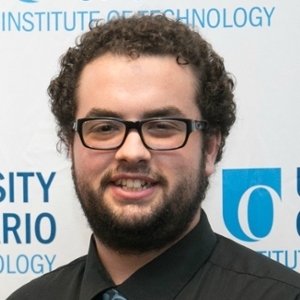Category:
Creating and caring for the community

Christopher Grol | Class of 2015
Bachelor of Arts, Honours, Forensic Psychology
From a very young age, Christopher Grol knew he wanted to help people but wasn’t sure how. It wasn’t until he learned more about the brain that he not only mapped out his path to care for others but found a community to call his own.
Enrolling in the Forensic Psychology program gave Christopher a greater understanding of the holistic nature of mental health. However, his most valuable experience at university came outside of the classroom when he became an executive of the Aboriginal Student Circle. As a proud Metis man, this increased his understanding of his cultural heritage and inspired his passion to teach other Aboriginal youth, encouraging them to become the leaders of tomorrow.
“I made great friends and found amazing supporters in the staff and students,” he said. “In a way, I left feeling that I was a part of an adoptive family, like my clan was with these awesome people I met during my time there.”
Today, Christopher works as an Aboriginal youth mental health and addictions worker for the Oshawa Community Health Centre (OCHC). In this role, he does one-on-one counseling, traditional or ceremonial services and conducts Aboriginal programming such as the Youth Healing Circle and Youth for Change. His work often takes him into the community for events that bring awareness to the OCHC services to associated communities. In addition to his career, Christopher also finds time to volunteer for UOIT’s Baagwating Indigenous Student Centre as a fire keeper for their sweat lodge ceremonies.
What’s next for Christopher’s future? He is uncertain at the moment, but he has narrowed it down to two options. “On one end, I hope to continue working with youth as a youth worker and advancing my abilities as a professional. On the other hand, I feel that graduate studies are in my future. I hope to eventually pursue a Master of Applied Clinical Psychology, and moving from there into a PhD, eventually becoming a clinical psychologist specializing in service for Aboriginal youth.”
